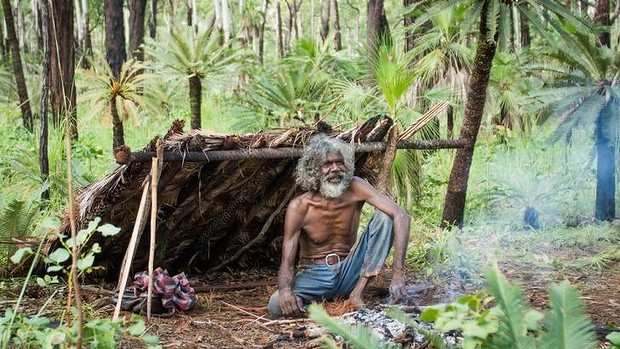The latest collaboration between Rolf De Heer and David Gulpilil.
David Gulpilil as Charlie in Rolf de Heer’s Charlie’s Country is about as fine a performance as you’re ever likely to see on film. There’s a nondescript depth behind the man’s eyes that convey wisdom and weakness concurrently, as if he’s allowing us rare admittance into an area of himself usually concealed. It’s the kind of uncommon performance in which a character can verbalise one thing but somehow expresses another. Charlie’s Country is utterly dependent on Gulpilil’s performance, since absolutely everything in the film is scrutinised through the character’s experience, nature and history.
Charlie is an elderly member of a remote Aboriginal community in Arnhem Land, struggling with the discord between his cultural heritage and the laws imposed by white men. An agreeable man, Charlie is liked by his community and enjoys friendly banter with local white policeman Luke (Luke Ford), but finds the marriage of these two ways of life uncomfortable. After an altercation with the police, Charlie decides to leave the community and head into the wilderness to embrace a more traditional lifestyle. Ageing and ill, Charlie’s journey eventually finds him in a hospital in Darwin, where authorities misunderstand his defiant pride of his culture as aggression.
The disunion between traditional Aboriginal culture and Western domination is nothing new to Australian cinema. De Heer himself is no stranger to exploring various facets of indigenous culture, having considered similar elements in The Tracker and Ten Canoes most notably as well a series of short documentaries on various aspect of indigenous culture and history. Where Charlie’s Country distinguishes itself is in the leisurely but powerful manner in which events transpire, touching on some fascinating ideas without ever insisting on significance. There’s a subtlety to De Heer’s message, as if he’s posing a question but leaving the answer up to the audience. There are no villains in Charlie’s Country, just misunderstanding.
The comfort between director and actor is immediately evident. Astonishing performances should feel effortless, as though the character was second nature to the actor. Gulpilil’s Charlie is perfectly unrefined, an absolute representation of humanity in a medium in which such a thing is rare. There’s a longing to the man, as if he is searching for something that he can’t entirely comprehend or recognise. It’s impossible to take our eyes of Charlie, so magnetic is Gulpilil’s presence. Lengthy close-ups of the man are an advantage rather than a hinderance. The wealth of history that Gulpilil has contributed to Australian cinema is a compelling factor to the success of the character. We’ve seen the man grow from a youth in Walkabout and Storm Boy into the man he is today and this sense of history translates into Charlie’s, a murky blend of naïvety and aged wisdom.
There’s a directionless quality to Charlie’s Country, a film perhaps better appreciated without the need for concrete narrative or purpose of story. It feels much longer than the 107 minutes that it runs for, and maintains a composed, meditative pace for its entirety. But there’s a deep reservoir of feeling between the frames of De Heer’s film that benefits from ambiguity. There’s certain cooperative between anger and acceptance but ultimately neither are the answer.
8/10
For more Reviews, click here. If you’re digging ReelGood, sign up to our mailing list for exclusive content, early reviews and chances to win big!

